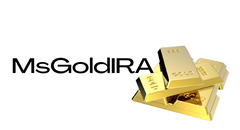
Balaji Srinivasan, a prominent figure in the technology and crypto industry, believes that the recent approval of U.S. spot bitcoin exchange-traded funds (ETFs) marks a significant transformation from centralized monetary systems to decentralized finance. According to Srinivasan, this shift is comparable to the reversal of Executive Order 6102, which involved the seizure of gold from U.S. citizens. He sees the rise of cryptocurrencies like bitcoin as a pivotal moment that restores power to individuals by decentralizing financial control.
Srinivasan Sees Bitcoin ETF Approval as an Indicator of a Major Financial Paradigm Shift
In 1935, the U.S. government, under President Franklin D. Roosevelt, executed a substantial confiscation of gold, strengthening state-centered financial control. In a recent post, Srinivasan highlights this event as a significant milestone in the history of centralized financial dominance. He observes that the approval of the spot bitcoin ETF signifies a radical departure from the long-established centralized fiscal regime, opening the door for decentralized digital currencies.
According to Srinivasan, "Since FDR's seizure of gold, our lives have revolved around the centralized state rather than the decentralized market. The state has had control for so long we've forgotten what freedom is like. But now gold is slipping out of their hands, and back into yours. And history is running in reverse."
Srinivasan also emphasizes the role of technological advancements in driving this shift. Unlike the past century, where technologies such as mass media favored centralization, today's innovations, including personal computers, end-to-end encryption, mobile technology, and cryptocurrencies, champion decentralization. This technological transformation plays a crucial role in redistributing financial authority from central institutions to individuals and decentralized systems.
"Thus, top talent isn't being pulled into a government Brain Trust," asserts Srinivasan. "It's being brain drained *out* of the U.S. establishment. And as a consequence, the epic legal battles are, on balance, going our way."
Srinivasan reflects on the legal conflicts and changing dynamics within institutions, pointing to a steady move towards decentralization. The narrow 3-2 vote in favor of the spot bitcoin ETF exemplifies this evolution. It represents a legal recognition of the increasing impact and legitimacy of decentralized finance, indicating a significant change in institutional perspectives on cryptocurrencies.
At the core of Srinivasan's argument is the concept of liberty. He contends that Bitcoin and similar technologies symbolize more than just financial instruments; they are part of a broader movement for global freedom. The resistance from traditional establishments, he notes, stems not only from the challenge of regulating a novel monetary system, but also from the fear of losing control over an increasingly elusive worldwide framework.
What are your thoughts on Srinivasan's perspective? Share your opinions in the comments section below.
Frequently Asked Questions
Is it possible to hold a gold ETF within a Roth IRA
While a 401k may not offer this option for you, it is worth considering other options, such an Individual Retirement Plan (IRA).
An IRA traditional allows both employees and employers to contribute. Another option is to invest in publicly traded corporations with an Employee Stockownership Plan (ESOP).
An ESOP is a tax-saving tool because employees have a share of company stock as well as the profits that the business generates. The money in the ESOP can then be subject to lower tax rates than if the money were in the individual's hands.
You can also get an Individual Retirement Annuity, or IRA. An IRA lets you make regular, income-generating payments to yourself over your life. Contributions to IRAs will not be taxed
How can you withdraw from an IRA of Precious Metals?
First decide if your IRA account allows you to withdraw funds. Make sure you have enough cash in your account to cover any fees, penalties, or charges that may be associated with withdrawing money from an IRA.
Consider opening a taxable brokerage instead of an IRA if it is possible to pay a penalty if your withdrawal is made before the deadline. You will also have to account for taxes due on any amount you withdraw if you choose this option.
Next, figure out how much money will be taken out of your IRA. This calculation is affected by many factors, such as the age at which you withdraw the money, the amount of time the account has been owned, and whether your plans to continue contributing to your retirement fund.
Once you determine the percentage of your total saved money you want to convert into cash, then you need to choose which type IRA you will use. Traditional IRAs let you withdraw money tax-free after you turn 59 1/2, while Roth IRAs require you to pay income taxes upfront but allow you access the earnings later without paying any additional taxes.
Once the calculations have been completed, it's time to open a brokerage accounts. To encourage customers to open accounts, brokers often offer signup bonuses and promotions. However, a debit card is better than a card. This will save you unnecessary fees.
When it comes time to withdraw your precious metal IRA funds, you will need a safe location where you can keep your coins. Some storage facilities can accept bullion bar, while others require you buy individual coins. You'll have to weigh the pros of each option before you make a decision.
For example, storing bullion bars requires less space because you aren't dealing with individual coins. However, each coin will need to be counted individually. However, individual coins can be stored to make it easy to track their value.
Some prefer to keep their money in a vault. Others prefer to store them in a safe deposit box. Whatever method you choose to store your bullion, you should ensure it is safe and secure so you can enjoy its many benefits for many years.
How much money should my Roth IRA be funded?
Roth IRAs are retirement accounts where you deposit your own money tax-free. These accounts cannot be withdrawn until you turn 59 1/2. There are some rules that you need to keep in mind if you want to withdraw funds from these accounts before you reach 59 1/2. First, your principal (the deposit amount originally made) is not transferable. This means that regardless of how much you contribute to an account, you cannot take out any more than you initially contributed. If you wish to withdraw more than you originally contributed, you will have to pay taxes.
The second rule states that income taxes must be paid before you can withdraw earnings. Also, taxes will be due on any earnings you take. Let's take, for example, $5,000 in annual Roth IRA contributions. Let's say you earn $10,000 each year after contributing. The federal income tax on your earnings would amount to $3,500. The remaining $6,500 is yours. Since you're limited to taking out only what you initially contributed, that's all you could take out.
If you took $4,000 from your earnings, you would still owe taxes for the $1,500 remaining. You'd also lose half the earnings that you took out, as they would be subject to a second 50% tax (half of 40%). Even though you had $7,000 in your Roth IRA account, you only received $4,000.
There are two types of Roth IRAs: Traditional and Roth. A traditional IRA allows for you to deduct pretax contributions of your taxable income. You can withdraw your contributions plus interest from your traditional IRA when you retire. A traditional IRA can be withdrawn up to the maximum amount allowed.
A Roth IRA doesn't allow you to deduct your contributions. You can withdraw your entire contribution, plus accrued interests, after you retire. There is no minimum withdrawal required, unlike a traditional IRA. It doesn't matter if you are 70 1/2 or older before you withdraw your contribution.
What is the best way to hold physical gold?
Not just paper money or coins, gold is money. Gold is an asset people have used for thousands years as a place to store value and protect their wealth from economic uncertainty and inflation. Gold is a part of a diversified portfolio that investors can use to protect their wealth from financial uncertainty.
Many Americans are now more inclined to invest in precious metals like gold and silver than stocks or bonds. Although owning gold does not guarantee that you will make money investing in it, there are many reasons to consider adding gold into your retirement portfolio.
One reason is that gold historically performs better than other assets during financial panics. Between August 2011 and early 2013 gold prices soared nearly 100 percent, while the S&P 500 plunged 21 percent. During those turbulent market conditions, gold was among the few assets that outperformed stocks.
Gold is one of the few assets that has virtually no counterparty risks. Your shares will still be yours even if your stock portfolio drops. However, if you have gold, your value will rise even if the company that you invested in defaults on its loans.
Finally, gold offers liquidity. This means you can easily sell your gold any time, unlike other investments. The liquidity of gold makes it a good investment. This allows for you to benefit from the short-term fluctuations of the gold market.
Statistics
- This is a 15% margin that has shown no stable direction of growth but fluctuates seemingly at random. (smartasset.com)
- Contribution limits$6,000 (49 and under) $7,000 (50 and up)$6,000 (49 and under) $7,000 (50 and up)$58,000 or 25% of your annual compensation (whichever is smaller) (lendedu.com)
- You can only purchase gold bars at least 99.5% purity. (forbes.com)
- If you take distributions before hitting 59.5, you'll owe a 10% penalty on the amount withdrawn. (lendedu.com)
- Instead, the economy improved, stocks rebounded, and gold plunged, losing 28 percent of its value in 2013. (aarp.org)
External Links
cftc.gov
- Fraud Advisory: Precious Metals Fraud
—————————————————————————————————————————————————————————————-
By: Jamie Redman
Title: Bitcoin ETF Approval Signals a Paradigm Shift, Says Balaji Srinivasan
Sourced From: news.bitcoin.com/balaji-srinivasan-equates-bitcoin-etf-move-to-reversal-of-fdrs-historic-gold-seizure/
Published Date: Thu, 11 Jan 2024 18:30:07 +0000










